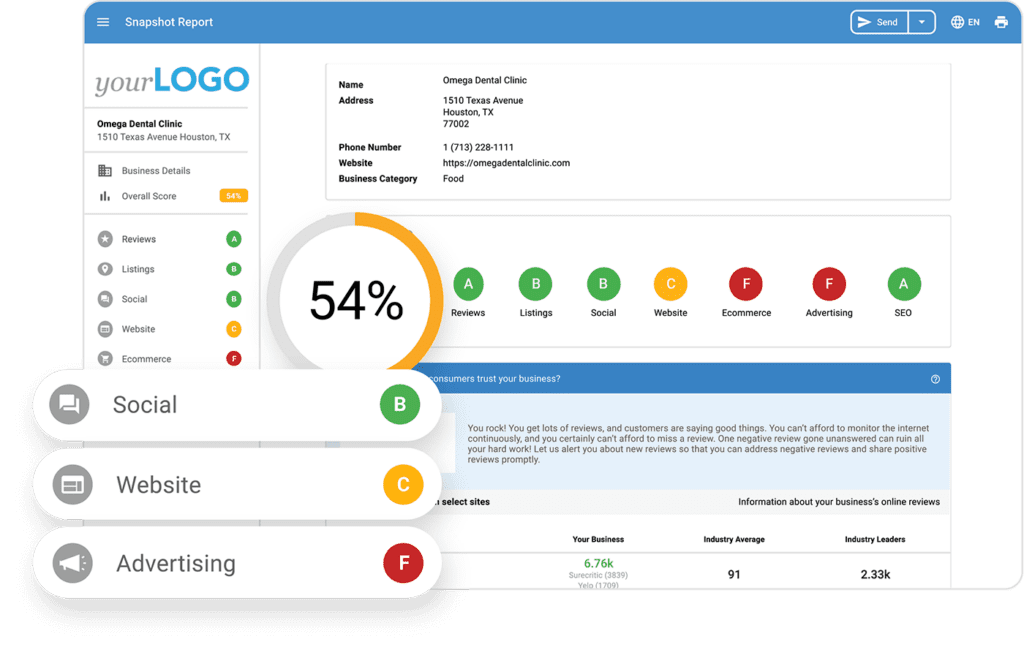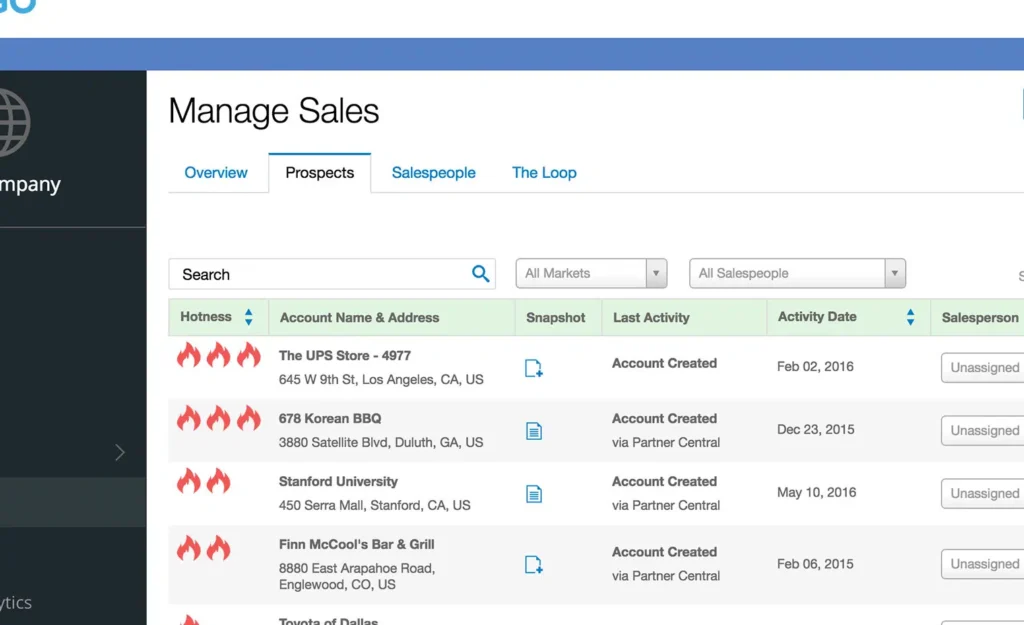 Email is far from dead and remains one of the most cost-effective tools in the marketer’s toolbox. But thanks to AI, this tried-and-true engagement tool is getting a metaphorical facelift. With AI email marketing tools, you can better personalize content, increase engagement, and boost conversion rates. AI helps teams tailor messaging to align with specific audience behaviors and preferences and automate certain campaign efforts to reduce costs and drive efficiencies.
Email is far from dead and remains one of the most cost-effective tools in the marketer’s toolbox. But thanks to AI, this tried-and-true engagement tool is getting a metaphorical facelift. With AI email marketing tools, you can better personalize content, increase engagement, and boost conversion rates. AI helps teams tailor messaging to align with specific audience behaviors and preferences and automate certain campaign efforts to reduce costs and drive efficiencies.
What is AI email marketing?
AI email marketing is when businesses use artificial intelligence to create or optimize email marketing campaigns, typically via automation. This includes using algorithms, natural language processing, and AI analytics in any task related to email marketing.
If you use modern email marketing tools, such as options from MailChimp or MailerLite, you’re probably already using email marketing AI tools to help you understand the best time to send emails, how best to segment your audience, or to automate email deliveries based on customer information sourced from your CRM system, social media, and other channels.
AI can enhance email marketing campaigns in a number of ways, including:
- Tailoring email content to meet the preferences or needs of individual recipients.
- Leveraging customer data to create detailed audience segments.
- Automating delivery to support optimal impact.
- Running efficient A/B testing to support more effective outcomes.
- Offering suggestions about potential spam triggers to increase the deliverability of emails.
Boosting email marketing with AI
AI offers benefits for all types of digital marketing campaigns, and email is no exception. Here are some potential advantages of email marketing with AI:
- Increased personalization and targeting. AI helps you turn customer data from your CRM system and other channels into actionable insights that help drive better email targeting. AI can also take those data and insights and automate personalization, such as including specific links, product images, or other content in emails for each segment of your audience or each individual recipient.
- Improved engagement and conversion rates. AI-powered email marketing can support optimizations that drive higher engagement and conversion rates. That has a positive knock-on effect for future campaigns, too, as your messages are more likely to show up in email inboxes instead of promotion or spam folders.
- Time and cost efficiency. You can leverage AI to reduce tedious human-powered processes, leading to cost savings.
AI use cases
To truly understand the impact of AI email marketing, consider some real-world use cases for this technology.
Automated content creation and optimization
You can use GPTs to automatically create text and AI art generators to create images from prompts. These tools help you draft and create compelling, visually appealing emails, which can be a huge benefit when you need to send emails consistently. AI content creation offers a springboard that helps marketing teams avoid or deal with creative burnout.
You can also use AI tools to optimize content created by humans. For example, you can run email content through programs that check for spam triggers or offer suggestions for improving CTAs or subject lines based on the performance of previous email campaigns.
Predictive analytics for customer segmentation
AI can analyze vast amounts of data—more than human-powered processes can hope to handle—to identify patterns. It can leverage information about those patterns to predict future customer behaviors or preferences, informing email campaigns.
For instance, AI can use algorithms to assess factors such as purchase history, engagement with social media and other content, and web browsing behavior to create robust audience segmentation. This helps you create highly targeted email campaigns that increase the chances of conversions.
Tip: Leverage online data about the businesses you’re targeting to create highly personalized assessments with Snapchat Report.

Dynamic email content based on user behavior
Marketing integration with your CRM, website, or ordering system can also help you leverage AI to create dynamic content based on previous user behavior. For example, you may want to send an email to customers who haven’t completed an order with a client in more than two weeks.
You can use AI and integration with customer ordering systems to include a tailored image and link to an item each customer recently looked at, abandoned in their cart, or saved to a wish list.
Overcoming the obstacles
While it has many benefits, AI for email marketing is not without challenges. If you’re working on starting an agency with no experience or expanding your digital marketing efforts with the help of email marketing AI tools, it’s important to be aware of potential obstacles, which can include:
- Data privacy and security concerns. AI relies on vast amounts of data, and customers, clients, and others may be worried about how their data is being used. You may also need to integrate a variety of tools to support AI email marketing processes, and it’s important to ensure each one and the integration is secure.
- Integration with existing systems and processes. Integration itself can present a challenge, as tools don’t always automatically work well together. You may need to invest in technical resources to build appropriate integrations and streamline processes.
- Cost and resource implications of implementing AI technology. While AI can save you a lot of time and money in the long run, you may find that costs are front-loaded. You could run into costs for technical resources or labor in training staff and establishing new processes.
Tools you’ll need for AI email marketing
Understanding the types of AI email marketing tools you may need to begin leveraging this technology can help you build these processes and avoid some of the potential obstacles.
As an agency offering services to clients, you can also white-label software to provide holistic email marketing solutions to your clients.
Some tools you’ll need include:
- AI-powered email marketing platforms. Consider options such as Mailchimp, HubSpot, or Campaign Monitor.
- Data analytics tools. Some options include Google Analytics, Klaviyo, and Segment, and many email marketing platforms have built-in tools.
- CRM software for customer insights. Some common options include Salesforce, Zoho CRM, and HubSpot CRM.
Tip: Discover 101 free tools for digital marketers here.
How to implement AI in email marketing
Whether you want to use AI email marketing for lead generation or to begin building a potential client list for your startup idea, follow the steps below.
1. Conduct an assessment of current email marketing strategies
Consider how you currently use email marketing for your agency or clients. Include major campaign goals, who is involved in email marketing, what aspects you or your team are responsible for, and your overall processes.
It may be a good idea to speak with subject matter experts, including members of your team and those from your clients’ teams. You can also create a flowchart of processes to help visualize your current email marketing strategies.
2. Identify areas where AI can be most beneficial
Look for opportunities to insert AI into your email marketing processes. You may see an obvious area where AI can replace tedious or repetitive human processes. AI can also be used as an enhancement rather than an outright replacement.
Some areas where AI may be the most beneficial in email marketing include:
- Generating content. AI can offer recommendations for content or help you tailor offers to your audience.
- A/B testing. AI can help set up, perform, and analyze the results of A/B testing to optimize email performance.
- Segmentation and personalization. AI can perform the data analysis and respond to insights and conclusions to maximize the effects of audience segmentation and personalize email content.
- Engagement analysis. AI can review, sometimes in real-time, the results of specific emails to help you understand how recipients interact with emails. This can lead to important insights that help you improve email strategies in the future.
Tip: See which emails are opened and which product prospects are considering using Vendasta’s email marketing tool.
3. Select the right AI tools and technologies for your business
Once you understand your desired end-state for email marketing strategies and where AI might best fit into that picture, you can select AI tools and technologies for your business. When choosing these resources, consider factors such as:
- Cost and budget. You may find free, subscription, or single-purchase tools. Consider the total cost of tools and whether they fit your budget.
- Features. Choose tools that have features that match your email marketing needs.
- Scalability. Think proactively, considering your future email marketing needs and whether the tools you choose will be able to grow with your agency and clients.
4. Train your team on how to use AI effectively in email marketing campaigns
Implement email marketing AI tools and begin training your teams on how to use them effectively. Teams may need to learn to interact with user interfaces, manage processes that involve automatic data analysis, or engage in humanizing AI content.
If you’re using AI to support email marketing outcomes for clients, you may also need to teach your clients about these processes. At a minimum, you should be transparent about the fact that you include AI resources, so create communication protocols about your use of AI and what clients can expect from that.
This article was originally published at Vendasta.
Photo: fauxels / Pexels

